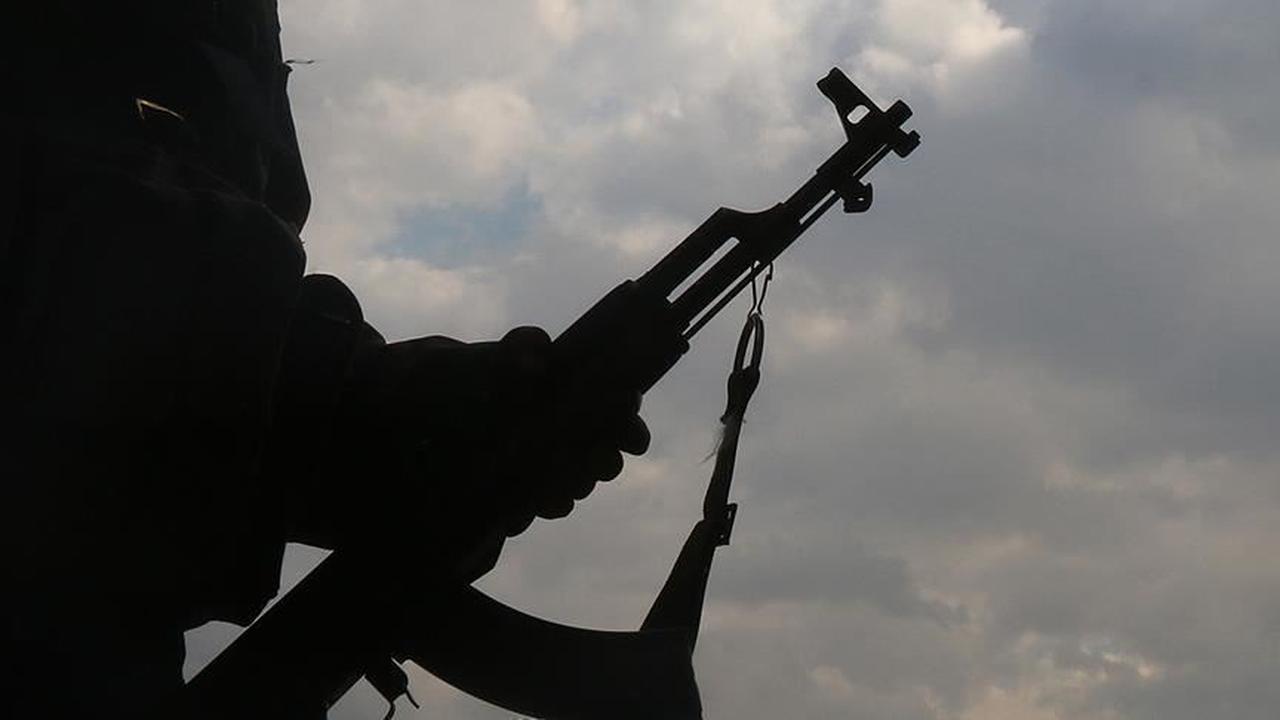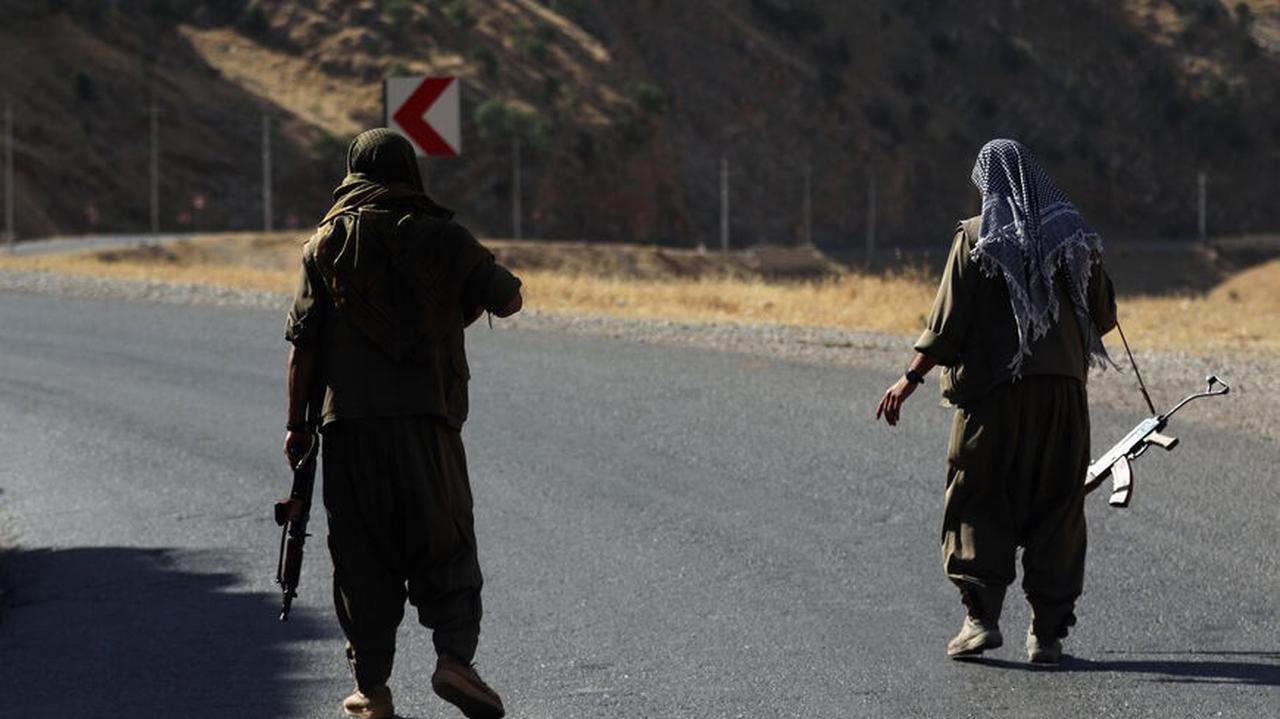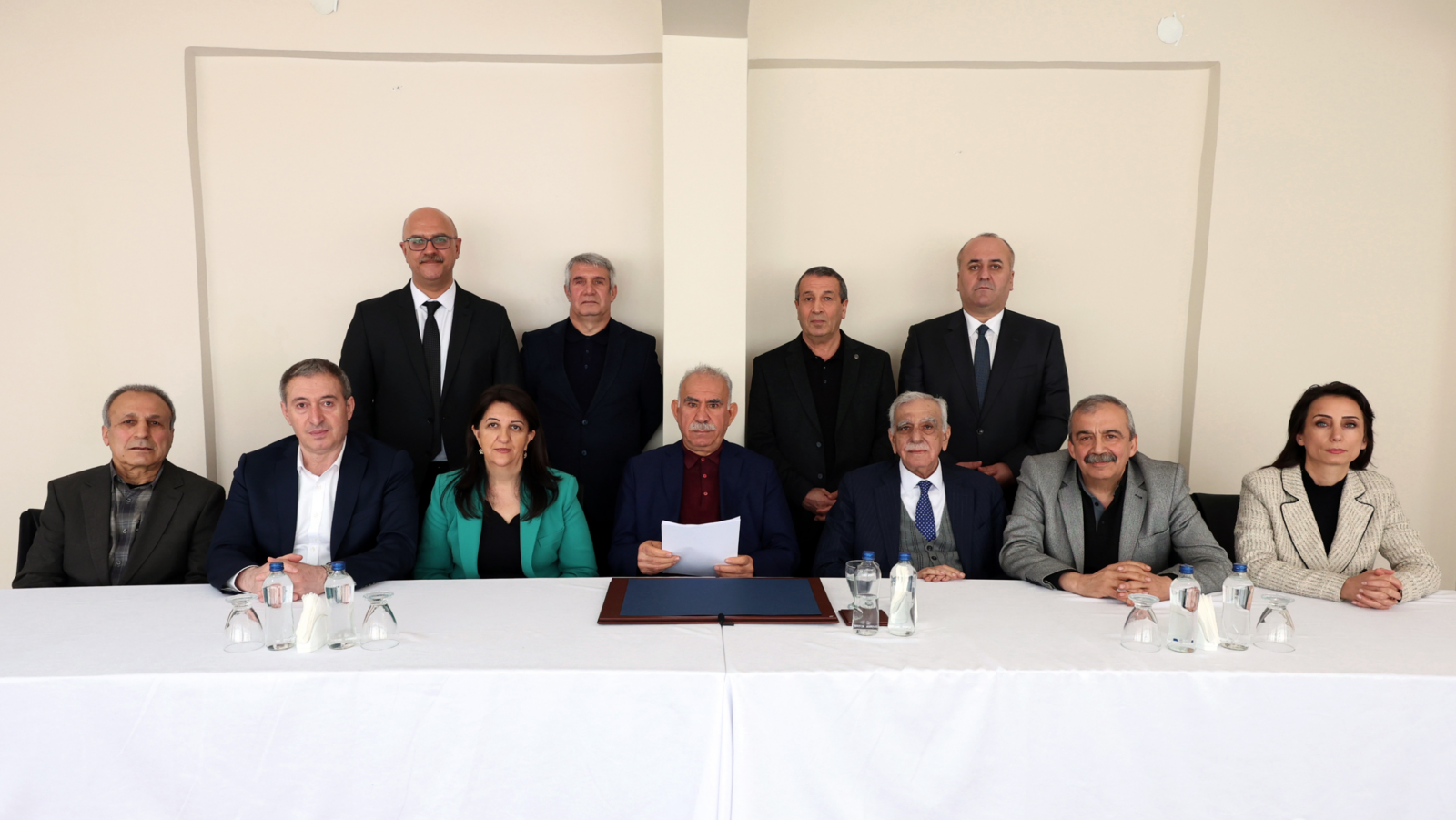
In a historic development that could reshape Türkiye's political landscape, the PKK, designated as a terrorist organization by Türkiye, the United States, and the European Union, announced on Monday that it would lay down its arms and dissolve its military structure.
The move would potentially end a four-decade terrorism campaign against Türkiye, claiming the lives of more than 40,000 people, including women and children.
The announcement, made through a statement issued by the terrorist group's leadership council, follows weeks of speculation after imprisoned ringleader Abdullah Ocalan called for disarmament through representatives of the Kurdish-oriented Peoples' Equality and Democracy Party (DEM Party) who visited him at Imrali prison.
Recently the DEM Party spokesperson Aysegul Dogan stated, "It is only a matter of time before the PKK announces that it has convened its congress. We look forward to this historic step."
"All armed groups must lay down their arms, and the PKK must disband," Ocalan had stated in his declaration, which marked the first significant breakthrough in years toward ending one of the region's most intractable conflicts.
Earlier reports this week from a Turkish media outlet suggested that President Recep Tayyip Erdogan told lawmakers in a closed meeting, "We have overcome all obstacles. PKK will lay down arms and dissolve the organization any day now. After that, a new process and a new era will begin for all of us. Politics will have a significant role to play."
President Erdogan had previously made it clear that the PKK and its offshoots either had to lay down arms or "will be buried."
Former parliamentarian of the ruling Justice and Development Party (AK Party), Samil Tayyar, revealed Sunday that a comprehensive framework for the disarmament process has been established, citing a senior bureaucrat involved in the negotiations.
According to Tayyar, PKK leader Abdullah Ocalan personally intervened to resolve internal disputes within the organization that had threatened to derail the peace initiative.
The roadmap indicates weapons will be surrendered under Turkish supervision in Suleymaniye and Erbil in northern Iraq, while nearly 300 high-ranking PKK officials will relocate to third countries such as Norway and South Africa, with Iran, Iraq, and Syria explicitly excluded as possible destinations.
Members not involved in criminal activities will return to their countries of citizenship, while approximately 4,000 Turkish citizens affiliated with the organization will be gradually received at border crossings. The plan prioritizes reuniting the "Diyarbakir mothers" with their children as an initial step.
The framework stipulates that Ocalan will remain imprisoned on Imrali Island, and no international guarantor countries will be involved in the process.
Legal reforms will allow elderly and ill PKK members to benefit from new release provisions, with the possibility of a limited amnesty being considered if social consensus is achieved." More than the decisions at the table, the implementations in the field will concretize the course of the process," Tayyar concluded.

Justice Minister Yilmaz Tunc hailed the development as a crucial milestone in Türkiye's fight against terrorism, following the terrorist group's announcement to dissolve and lay down arms.
"Our country will leave the darkness of terrorism behind and continue its determined march toward the light of brotherhood and stability, advancing with confident steps on the path to high-standard democracy with commitment to the rule of law, always upholding the fundamental values of our Republic in line with the goal of a 'Terrorism-Free Türkiye,'" Tunc said in a statement on social media.
Tunc emphasized that the honorable struggle carried out by thousands of the nation's children "at the cost of their lives" for the country's future, the indivisible integrity of the homeland, and the free waving of the flag has opened the way for Türkiye to walk confidently toward a peaceful, secure and stable future.
The justice minister credited the development to "the unwavering will of our noble nation, the strong leadership demonstrated by our President Recep Tayyip Erdogan, and the national stance of Mr. Devlet Bahceli" at the threshold of what officials call the "Turkish Century."
In his statement, Tunc commemorated with gratitude the "heroic martyrs who sacrificed their lives in the fight against terrorism" and expressed thanks to veterans while offering condolences to the families of those lost.
The current peace initiative emerged from what Devlet Bahceli, leader of the Nationalist Movement Party (MHP) and key ally in Türkiye's governing coalition, called the terror-free Türkiye project launched in October 2024.
This initiative coincided with significant regional developments, including the collapse of the Baath regime in Syria, which has altered power dynamics throughout the area.
The implementation of the disarmament process and the reintegration of former militants will test the terrorist group's commitment to healing decades-old wounds. For families of those forcibly recruited by the PKK, particularly those whose children were taken as minors, the announcement brings cautious hope for reconciliation.
Mothers who have protested for years in the southeastern city of Diyarbakir, demanding the return of their children, may now see a path toward reunion.

Analysts note that previous peace initiatives have faltered, including a similar attempt in 2004 when a PKK congress initially considered disbanding but ultimately decided to continue armed operations.
"Today's geopolitical landscape is fundamentally different," said Orhan Miroglu, a former journalist and member of the AK Party's Central Committee. "The world has changed, and external actors who once supported the PKK's armed struggle now have different priorities."
A significant complication remains the status of the PKK’s Syrian offshoot, the YPG, which plays a dominant role in the SDF—a group long supported by Washington in the fight against Daesh in the region.
Following Ocalan's call for disarmament, Mazloum Abdi, the code name of Ferhat Abdi Sahin, a senior figure in the terrorist organization SDF and a known leader within the YPG, quickly claimed that the directive applied "only to the PKK" and not to the SDF.
Salih Muslim, co-chair of the PYD in Syria, has indicated conditional support for disarmament, stating, "There would be no need for weapons if we are allowed to work politically."